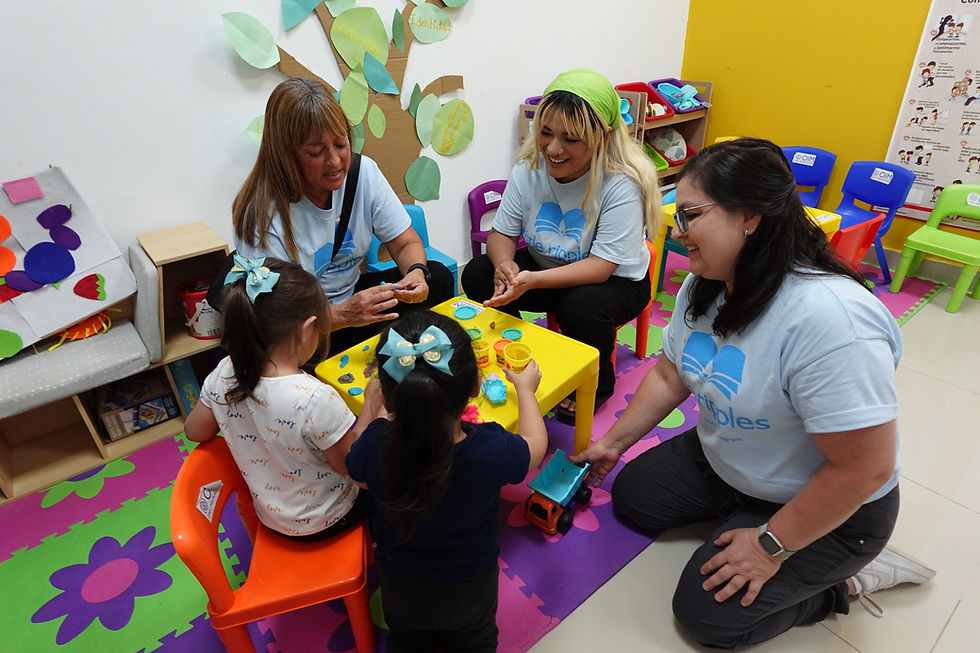Clean water and soap
- iACT
- Mar 26, 2017
- 2 min read
Updated: Mar 8, 2024
Water, sanitation and hygiene—referred to as WASH by the humanitarian sector. Due to their interdependent nature, these three core issues are grouped together. At iACT, these issues, and more, are a core part of all our curriculums across our education and sports programs. However, we refer to our curriculum as Health, Hygiene and Wellness.
Yesterday, during Little Ripples teacher training in camp Djabal, eastern Chad, our Program Manager, Felicia Lee, covered the three most important aspects of our Health, Hygiene and Wellness curriculum—what we call the low hanging fruit with the greatest potential for impact on the health of a child, a classroom and the community. They are:
Using the latrine and ending the practice of open defecation
Washing hands with clean water and soap, after using the latrine and before and after eating meals
Coughing and sneezing into the arm
These may sound obvious and simple, but for crowded refugee camps these simple behavior changes are essential to disease prevention and the health of children. We were reminded during training that these three practices are not so straightforward. The room of teacher candidates still had some clarifying questions on the topic:
Can children share a bucket of water to wash their hands? Do I have to pour water onto their hands of children? How long do children need to wash their hands? What about if I use my handkerchief to cough or sneeze?
As a trainer, I was excited to see the women engaging and questioning the information! But as a humanitarian, I couldn’t help but wonder why this information was still novel after 13 years. Why, after 13 years, under the care of some of the largest international organizations within the education and health sector did washing hands with clean water and soap require further clarification? Did the generation before them learn this information and not pass it on? Was the information not convincing for behavior change? Are there too many other stressors in their daily life to worry about hand-washing?
After every trip to these refugee camps, I still leave with so many questions about culture, daily life, and behavior. I also leave with ongoing questions about the overall humanitarian response that has been taking place in twelve camps across eastern Chad for more than a decade. What have we done right? Where have we gone wrong? What solutions and approaches create positive impact and behavior change—or don’t—and why?
Over the years, and today, I seek answers and form my own opinions, but all I know for sure, are the ways iACT is doing things differently—and with positive impact. I leave you with a quote from a mother of a Little Ripples Pond student in camp Goz Amer:
“Now before [my son] eats, he asks for soap and water to wash his hands. He never did that before! He won’t do anything unless he washes his hands first!” — Halima, mother of student at a Little Ripples Pond, camp Goz Amer


